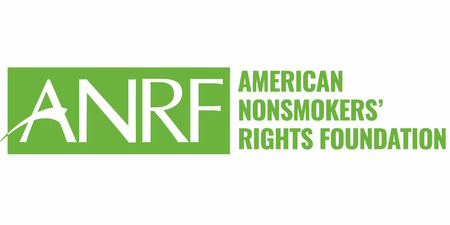What is Preemption?
Preemption is the passage of a law at the federal or state level, which makes it illegal for lower levels of government to enact stronger laws. Preemption is a tobacco industry tactic that removes a community’s right to enact local smokefree air laws. Big Tobacco has championed this strategy in order to stifle strong and innovative local tobacco control measures, because tobacco companies and their lobbyists have greater political influence in state legislatures than in local communities.
Preemption is a constant threat to local control, and it is an evolving tactic. Advocates and public health partners need to be on constant lookout and be able to respond quickly to preemptive bills. Some states, like West Virginia, face multiple preemptive bills each year from tobacco and casino industry opponents. Although West Virginia does not have a strong state smokefree law, the ability to adopt local laws means that 65.1% of West Virginians are protected by local 100% smokefree laws in workplaces, restaurants, and bars.
Many preemption states, like Pennsylvania, Oklahoma, and Tennessee, are stuck with weak state level smokefree air laws, and local communities do not have the right to adopt stronger smokefree protections. Thus, people in those states continue to suffer from secondhand smoke on the job and in public places.
Tobacco control preemption originated in 1985 in Florida, but it is now a corporate strategy used to prevent meaningful local laws on a variety of public health, environmental, and labor issues. Learn more in our post Public Health Plagued by Preemption.
WHY IS LOCAL CONTROL SO IMPORTANT?
Local control is at the heart of our broader goal of educating the public about the health effects caused by secondhand smoke and changing attitudes regarding smoking in ways that harm other people. A powerful change process unfolds as community debates the issue of secondhand smoke. Letters to the editor, town hall meetings, public debate, and media coverage all ensue. During this process, the community gains an increased understanding of the health risks associated with secondhand smoke, resulting in strong community support for a law protecting nonsmokers. Strong local laws serve as an example of good public health policy for other communities, and contribute to changing social norms. See our list of cities and states that have adopted strong smokefree laws.
Meaningful smokefree air legislation is much easier to enact at the local level, where policymakers are most responsive to the concerns of constituents and less influenced by tobacco industry lobbyists and campaign contributions. The tobacco companies are forced to work at the local level through fake front groups and allies, whereas they are able to directly engage policymakers at the state and federal level without as much of a credibility gap. Big Tobacco would much rather bottle up or weaken one bill at the state house than try to track and fight hundreds of local policy efforts throughout a state.
Because local residents typically have a higher understanding of the need for a smokefree law at the local level, compliance rates tend to be very high for local ordinances. Local enforcement agencies such as health departments are easily accessible to the community, whereas statewide enforcement can be less reliable or responsive. In addition, not every community in a state is at the same level of public education regarding secondhand smoke.
Everyone needs to breathe. Secondhand smoke is a very easily prevented cause of disease and death, both in adults and children. Local officials have the right and responsibility to deal with matters of public health and public safety in response to public concerns. A community’s public health laws should be determined by public support and local policymakers, not by tobacco industry lobbyists in backrooms of the state legislature.
PROTECT LOCAL CONTROL
Americans for Nonsmokers’ Rights (ANR), our sister organization, maintains the Protect Local Control website, devoted to the issue of tobacco control preemption. ANR tracks pending legislation relating to states’ and territories’ smokefree air policies as part of the continued fight to prevent preemptive legislation before it can be passed and to overturn preemption in states where it is already in place. The Protect Local Control site provides a history of preemption and contains state-level information, a tracking of pending state smokefree bills, news stories, local resolutions to protect local control and restore local control, how to set up a preemption strike force, and more resources.
MAP OF STATES WITH PREEMPTION OF SMOKEFREE AIR LAWS
The ANR Foundation maintains an annotated map of statewide smokefree preemption laws, which is updated annually in January.
The map is in PDF format.

